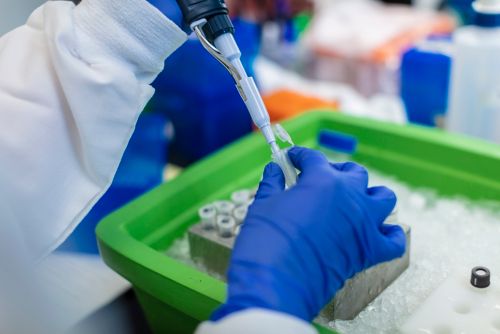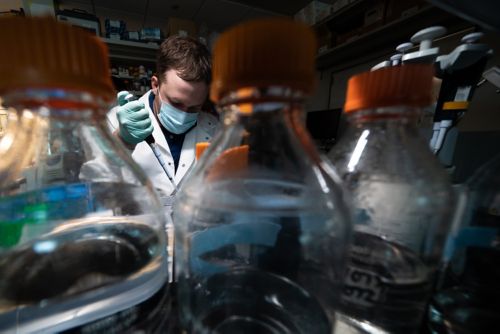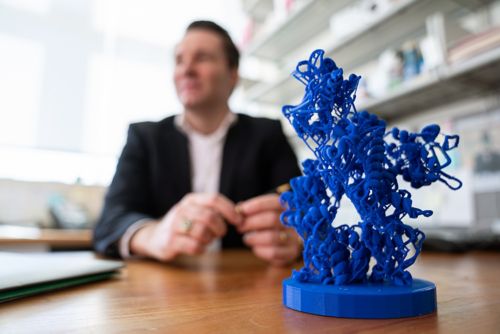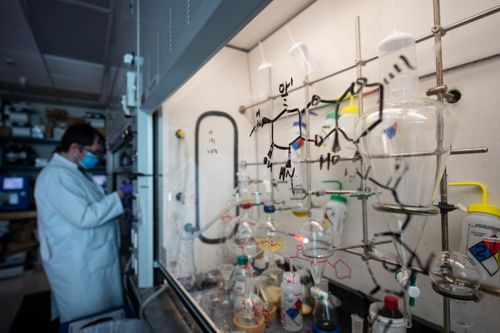Advancing synthetic gene regulators
The Ansari Lab is collaborating with multiple colleagues at St. Jude to target a wide range of genomic loci with synthetic DNA binding molecules. The synthetic team further benefitted from the active engagement in 2021 with a visiting Fulbright Scientist, Prof. Jaisankar Parasuraman, who brought a lifetime of experience as a chief scientist and chair of medicinal chemistry at the Indian Institute of Chemical Biology. Together the team has rationally designed and synthesized an array of promising synthetic genome readers and regulators (SynGRs) that are already providing unprecedented chemical control over target gene regulation. In parallel, the prototype SynGR, named SynTEF1, is maturing as a potential therapy for Friedreich’s ataxia.

Targeting CYP3A to enhance therapeutic response
The Chen Lab used the most important human drug-metabolizing enzymes, cytochrome P450 (CYP) 3A5 and 3A4 which metabolize more than half of marketed drugs, as models to tackle a challenging task. The lab discovered clobetasol propionate as the first selective CYP3A5 inhibitor and used it as a tool compound to discover a unique conformation of a surface loop of CYP3A5 that enables the selective binding of the inhibitor. These efforts support the feasibility of selectively inhibiting the highly homologous CYP3A family enzymes to control therapeutic responses. The findings were published in November 2021 in the Journal of the American Chemical Society.

Fischer lab celebrates a successful year
The Fischer Lab published eight papers in 2021. Shanshan Bradford’s article “Temperature Artifacts in Protein Structures Bias Ligand-Binding Predictions” was been picked up by several news outlets and landed on the cover of Chemical Science. Fatemeh Keramatnia, PharmD, PhD, a joint student with the Chemistry Centers, received an Alma and Hal Reagan Fellowship for her graduate work on Targeted Protein Degradation. In August, they welcomed a new postdoc Sarah Young to the lab. Sarah will drive the structural biology of the Crazy8 initiative that explores small molecule degraders for targeting transcription factor drivers of childhood cancers. Finally, the lab receive major NIH funding for an R35 MIRA grant on “Exploiting Water Network Perturbations in Protein Binding Sites”.

Lee lab hits a milestone
The Lee Lab generated their 5,000th molecule to advance into biological testing. Compound BBP-671, first synthesized in the lab, entered clinical trials as a first-in-class PanK modulator. The lab also hosted the Advances in Antibacterial Discovery Conference on December 3rd, an event within the Bringing Chemistry to Medicine Series, highlighting an interest in tackling the growing problem of antimicrobial resistance using advanced chemistry. This symposium attracted 540 attendees from 34 countries.
